As an Amazon Associate, I earn from qualifying purchases.
Learn all the tips and tricks for freezing peppers to save a ton of time and money. Learning how to freeze peppers (diced, sliced, rings, and whole) is a great way to preserve this delicious staple of so many recipes. A freezer stash of frozen peppers opens the door to amazing and speedy meals.
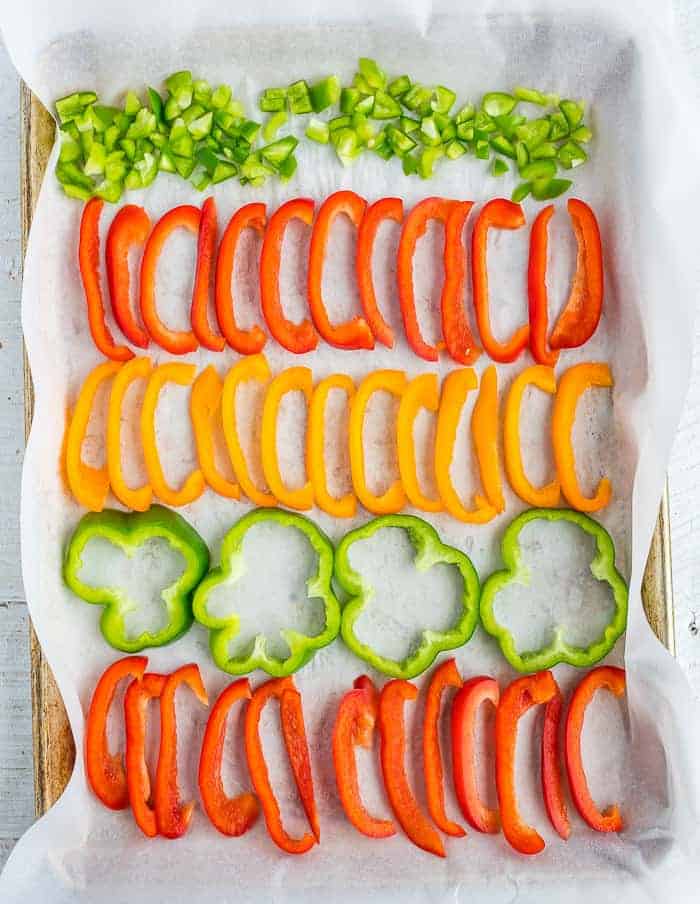
Frozen peppers are so versatile, but I get it…you don’t have time for a complicated preservation method.
So, instead of anything time-consuming, we’re preserving this crop in the freezer. No canning, nothing fancy, and no special equipment. Get ready for EASY!
Out of freezer space? Check out our post on Drying Peppers.
Can You Freeze Peppers?
Yes, you can! They’re not going to be as crispy as a fresh pepper, but they’re incredible in baked dishes like our fajita casserole.
Flash freezing, or the act of freezing food individually, allows the food to be stored without clumping together. In this instance, we’re going to put the peppers on a rimmed baking sheet and freeze them for 2 hours. Easy peasy!
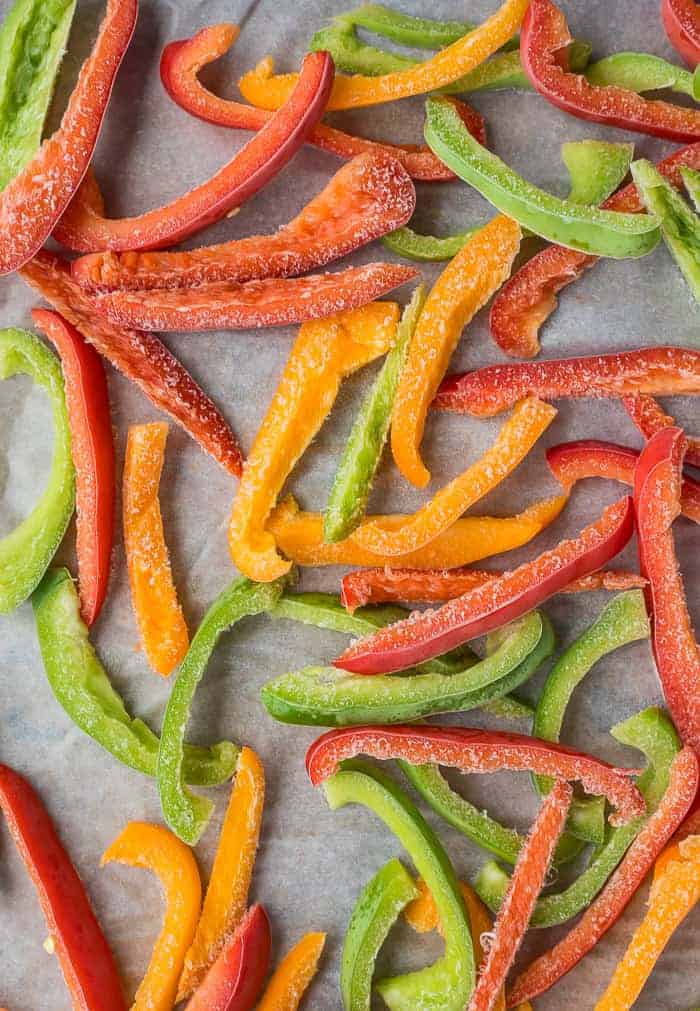
How to Store Frozen Peppers
Once frozen, you can transfer the peppers to freezer storage (we love these reusable silicone bags) and scoop out whatever amount you need without having to hack away at a hunk of peppers. Other options include:
- Freezer-safe Ziploc plastic bags
- Wide-mouth canning jars:
- 8 oz jam jars = 1 cup peppers
- 16 oz pint jars = 2 cups peppers
- 32 oz quart jars = 4 cups peppers
- Freezer-safe reusable snap-tight containers
- Souper Cubes for premeasured portions of frozen peppers.
Your peppers will last for 6-12 months in the freezer. If you have a deep freeze, storing them in there would be most effective and they will last longer than in a fridge/freezer combo.
Pro Tips/Recipe Notes For Freezing Peppers
- If you are processing hot peppers or a big batch, it is worth it to wear gloves to protect your hands and eyes. As someone who wears contacts, I always remove them and wear my glasses when working with peppers.
- If you’re cutting a lot of peppers, I highly recommend pulsing them in a food processor to save time.
- It is best to leave spicy peppers whole when freezing.
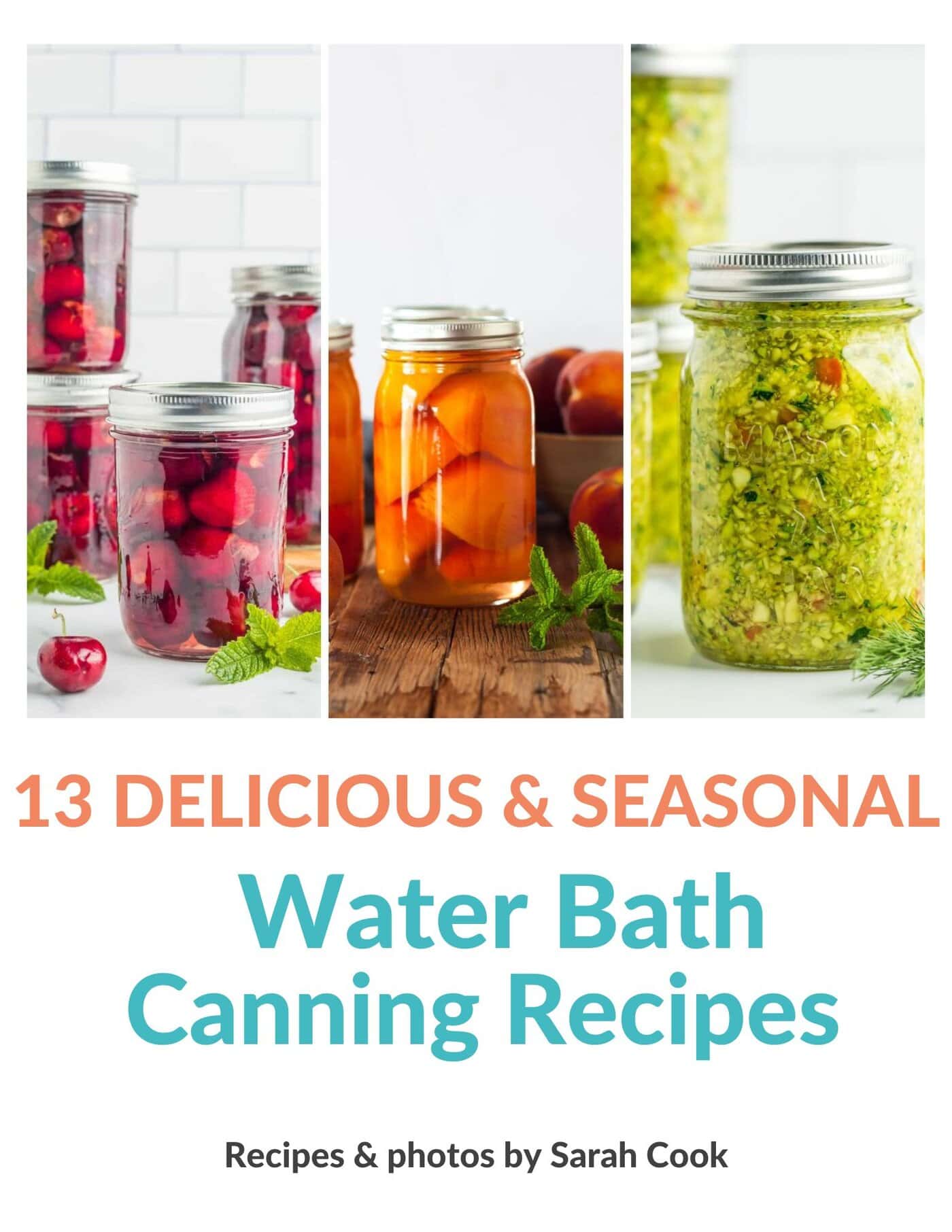
Get my Canning e-book!
It’s 51 pages of every helpful tip and trick you could want as a brand new canner, AND it includes 13 ad-free canning recipes that are designed to take you from novice to pro.
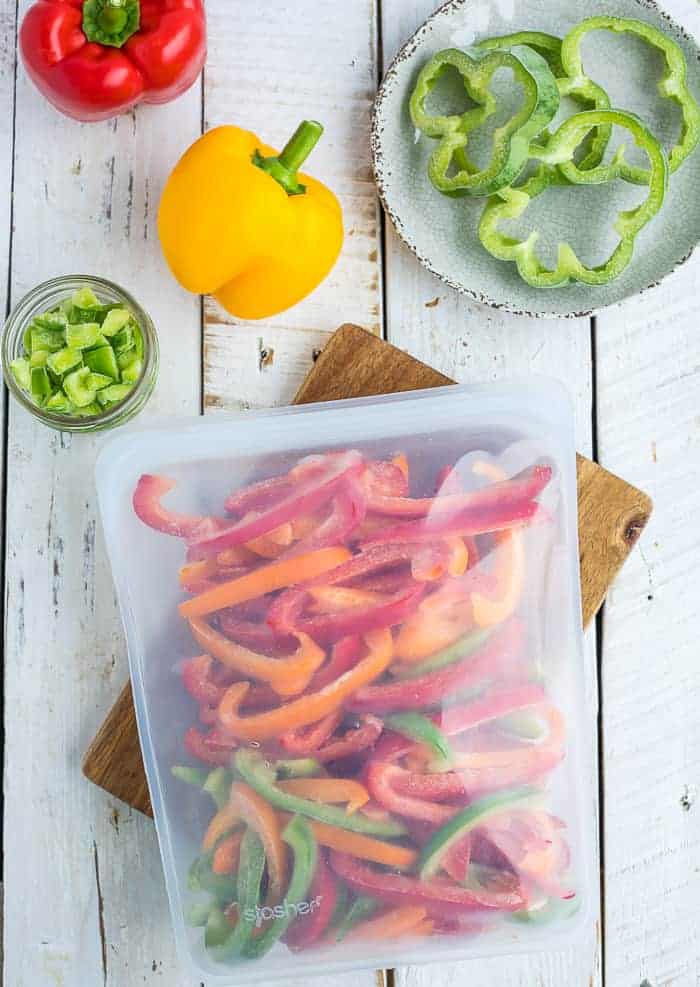
How to Freeze Peppers
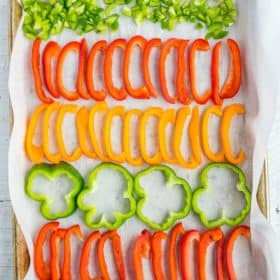
Equipment
Ingredients
- peppers
Instructions
- Line a rimmed baking sheet with parchment or a silpat.
- Wash and pat the peppers dry.
- Chop, slice, or prep the peppers to your preference.
- Place peppers on the baking sheet and position them so they aren't too clumped up, and place the tray in the freezer. Freeze for 3 hours.
- Break apart any clumps that have formed on the baking sheet and transfer peppers to freezer-proof storage.
Notes
- If you have a lot to freeze at once, lay another piece of parchment on top of the peppers and top with an additional layer.
- If you are processing hot peppers or a big batch, it is worth it to wear gloves to protect your hands and eyes. As someone who wears contacts, I always remove them and wear my glasses when working with peppers.
- It is best to leave spicy peppers whole when freezing.
- Frozen peppers will last in a conventional freezer for six months or a deep freezer for a year.
- To freeze whole peppers: cut off top, scoop out seeds, and freeze the pepper and top separately. Store together once frozen.

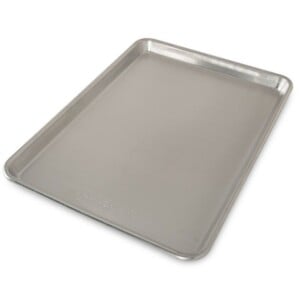
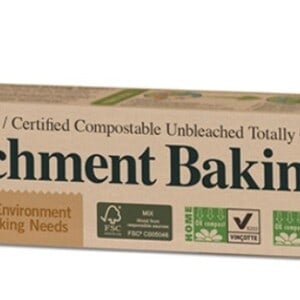
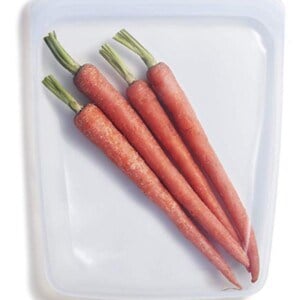
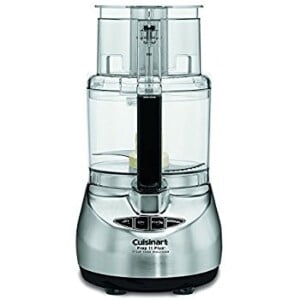
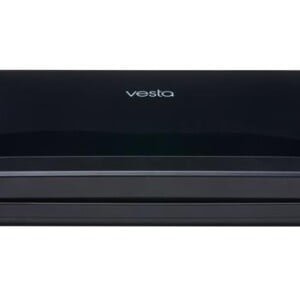

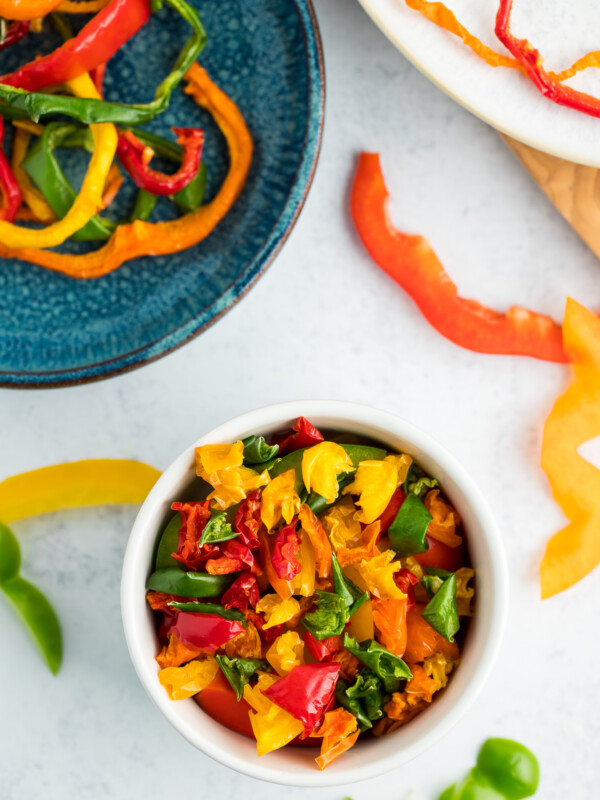
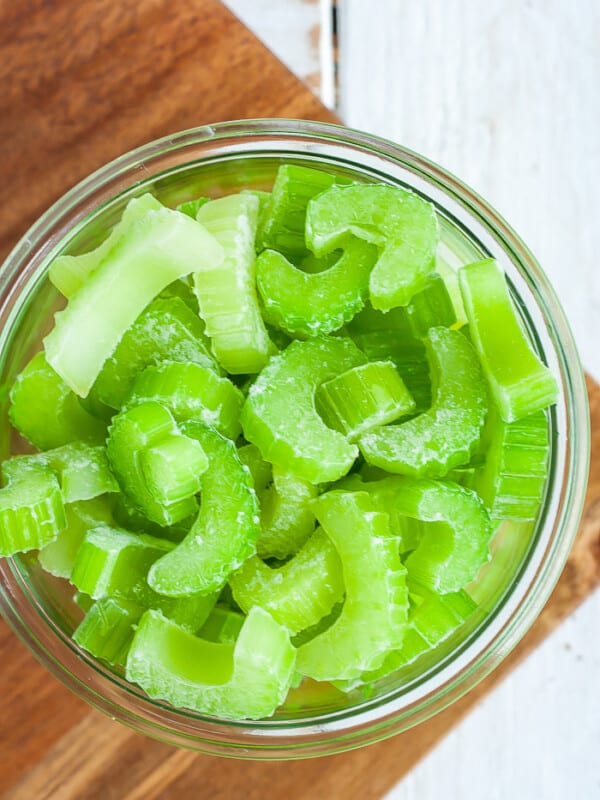
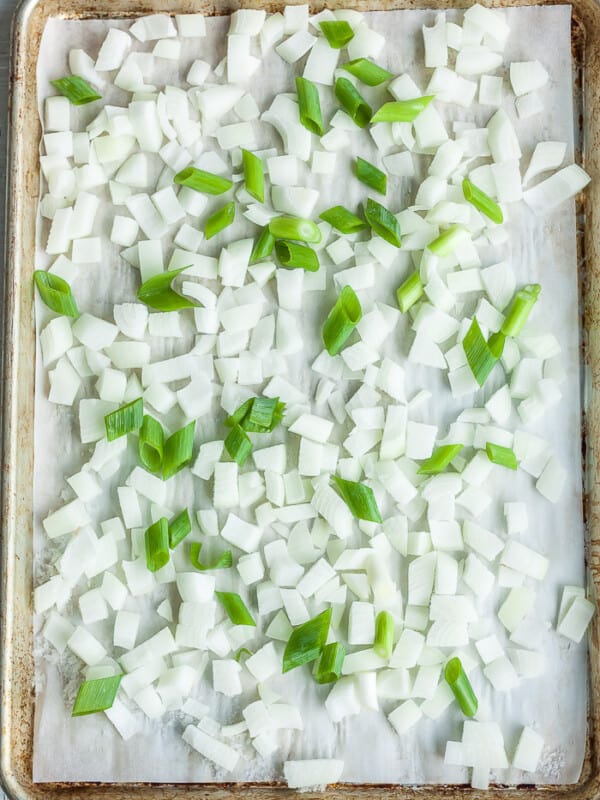
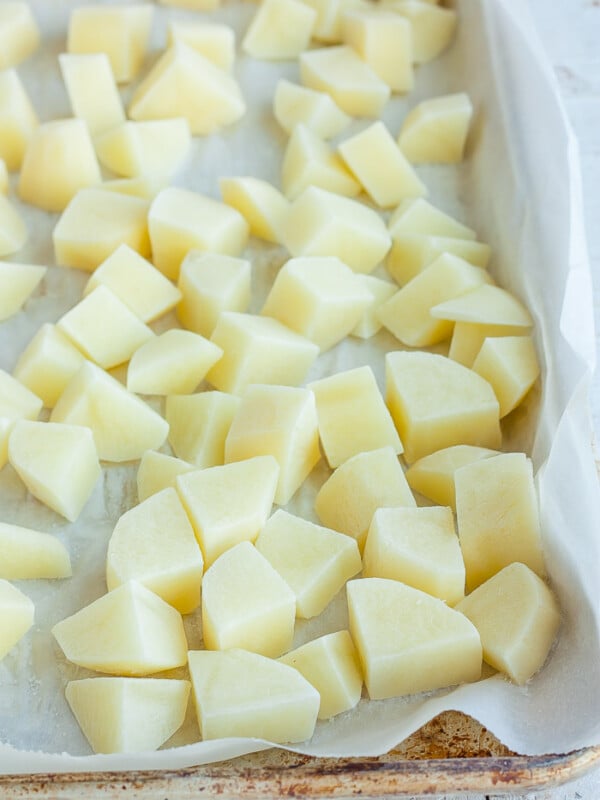
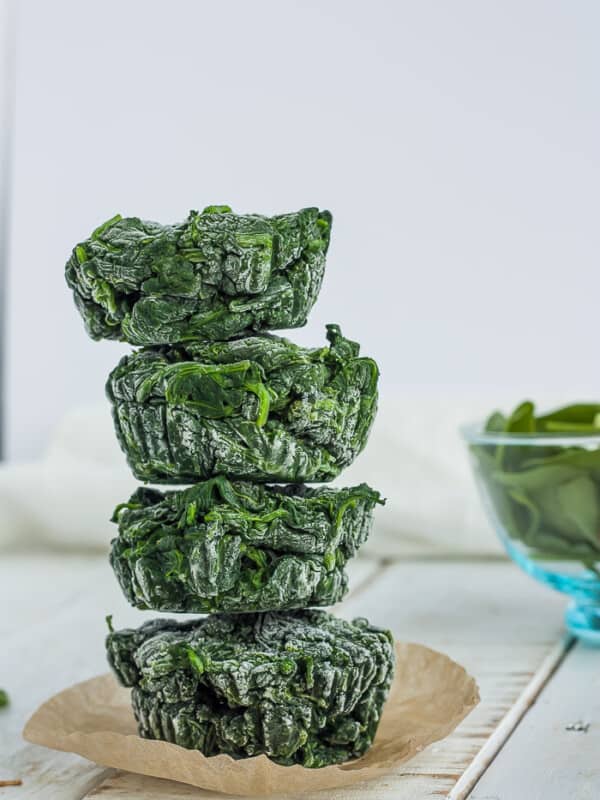
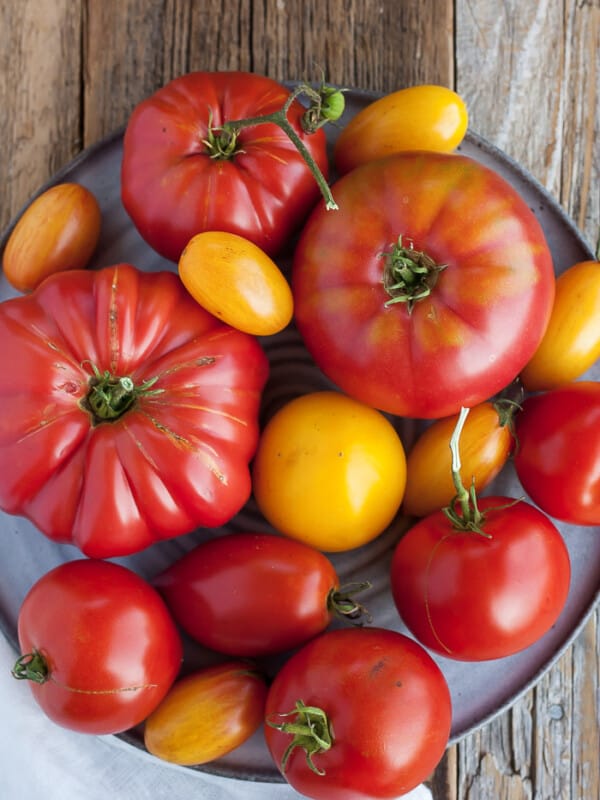






Thank you for all the good information.
Happy freeze, Brenda!
Preserving the fruits and vegetables from your garden is a great way to have them year round. We have done freezing of fruits and vegetables, canning and we are going to be freeze drying fruits, vegetables, eggs and even try meats and ice cream. We use the baking sheets to freeze our blueberries before we put them in vacuum sealed bags, so they don’t all lump together. We do the same with green beans and carrots. The freeze drying process is faster if you freeze what you are going to freeze before you put it in the machine. The Harvest Right freeze dryer was a pricey investment up front, but we are also going to do the strawberries, blueberries, apples, peaches, pears, apricots, raspberries and currants from our garden. They are like eating candy, but healthier. The other benefits are that freeze dried foods can be stored up to 25 years. I am not a doomsday prepper, but if there is a hurricane m tornado, blizzard or extended power outage, freeze dried foods will not spoil like the frozen foods if they thaw. I have friends that have canned meats as an emergency ration.
We have made pesto, and we freeze that because the PH level is not acidic enough to can, botulism can propagate if we don’t. We have made salsa, chili sauce and pizza/spaghetti sauce that we can from vegetables and herbs from our organic garden. We have a dehydrator that we use to dry basil, sage, parsley, oregano, thyme and mint. We also make venison jerky which is a hit with the kids and extended family. Organic gardening is a hobby, you could say for my husband and I, but we enjoy the fruits and vegetables in season, and we save money. I like knowing that there is no pesticides in the fruits and vegetables that we are eating.
We have a dehydrator that I love, but freeze-drying seems next level. How cool!
Yes,it is a pricy unit up front, but the cost per pound of freeze dried foods is not only $$$, but in short supply. We have friends and family that are campers, hikers, and like the freeze dried foods, the nice thing is that we can save our fruits and vegetables that would otherwise be tossed away, and can be given to those in need in disasters, and the food bank as well as sold as a side business to big city hikers and campers that look for organic vegetables and fruits to offset the costs. It is a hobby for us as well as a money saving/side business.